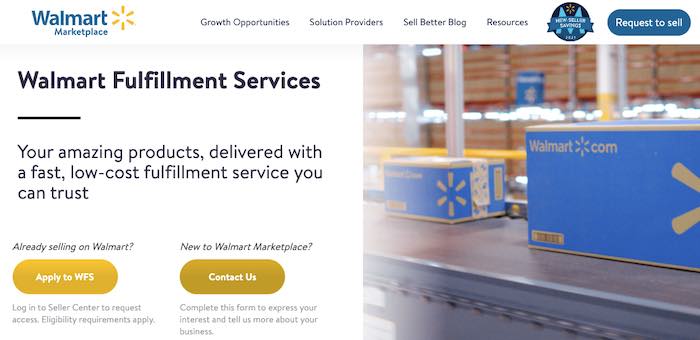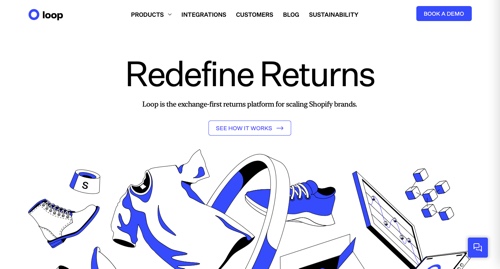
How brands deliver the aforementioned priorities is also a hugely important factor, which is why many companies in the space are focused on building customer relationships. Like most digital brands, social content is a big part of strategy for Jinx, with the brand using relatable and humorous content to target users.
With more people looking to their pets for comfort this year, we are also seeing greater interest in categories outside of standard pet food or treats. This is also due to what some call ‘the humanisation of pets’. DTC brands like Dandy (which sells supplements for dogs) is one example, but other companies that are not traditionally sellers of pet care are also expanding into the category.
The DTC pandemic boom: What can we learn?
Demand grows amid wider ecommerce boom
— Cat Person (@catperson) November 23, 2020
This is not a new concept, even within the direct-to-consumer field. Beverage brand Dirty Lemon first used a text-to-buy feature back in 2017, though it was then the only way customers could order from the brand. Dirty Lemon has since secured investment from Coca Cola and a partnership with retail giant Walmart.
We are always looking for more ways to make it easy for busy pet parents to feed their dogs the highest quality food. That’s why we are excited to announce our very first online retail partner, the one and only @Petco. https://t.co/h43xH4VeE2 pic.twitter.com/ljrWYB4B6W
According to the RSPCA, Google searches for “kittens near me” increased six-fold in July (year on year). In April, it was also reported that pet retailer PetsAtHome was seeing “exceptional demand”.
Personalisation for pets
Indeed, greater consideration about the heath of pets is behind many new DTC pet care brands, as the model enables customers to tailor food and treats based on the specific needs of their animal (in comparison to broader, big brand offerings). Dandy, for example, is an online company that sells customised vitamins and supplements for dogs, honing in on the idea that the products are ‘treats with benefits’.
Tails.com puts its earlier-than-planned expansion down to the wider shift to ecommerce, as well as growing care and concern from owners about pet nutrition; the company enables customers to personalise meals based on the nutritional requirements of dogs.
— Jinx (@thinkjinx) November 12, 2020
New innovations to foster customer relationships
While DTC companies often find success in niche categories, others are aiming to become a one-stop shop for pets online, fuelled by the demand for ease and convenience. This is the aim for Jinx – a DTC pet wellness company founded by three former Caspar execs. As well as offering a wide range of pet products, Jinx is hoping to appeal to a younger generation of pet owners who are used to (or perhaps more open to) shopping for their pets online as well as ideally from one place. Speaking to Digiday, Jinx’s CEO, Terri Rockovich said such businesses appeal to Millennials and Gen Z, as they “speak to their priorities: ease, convenience, transparency, controlled costs, authenticity and a seamless shopping experience.”
For the cat person who has everything…but a portrait of them and their cats. Shop it now at https://t.co/WOclBGeizv #catpersonholiday pic.twitter.com/3oeE104sfJ
Jinx is is already mirroring Dirty Lemon’s success, having recently launched a partnership with Petco to enable it to be the first DTC dog food brand sold on the Petco website.
Elsewhere, emerging DTCs are also recognising the demand for pets other than dogs. Cat Person, a DTC which is backed by Harry’s Labs, sells items solely for cats including food, beds, and toys. Unsurprisingly, given the name, Cat Person is aiming to target cat owners who might have felt under-served by big retailers as well as smaller DTCs which typically focus on dogs.
Much like the opportunity for DTC brands within food or homeware, the pandemic has also given rise to new opportunities for pet brands. As well as a number of new companies emerging, we’ve also seen pet care retailers experiment or further invest in a direct-to-consumer model.
Much like Casper’s offering, which is all about selling mattresses in a more convenient and accessible way, Jinx is likely hoping to revolutionise the traditional shopping journey for pet owners (which tends to be brick-and-mortar or supermarket-focused).
Speaking to New Digital Age, the brand’s CEO and co-founder, James Davidson highlights one of the main benefits of the DTC channel: the ability to delve into and learn from customer data. “The biggest lesson for established brands to learn from DTC is [the] power of true, and continuous, real-time customer understanding,” Davidson says. “We try never to assume we know what the customer most needs or values. Instead we always test, develop new hypotheses and test and then test again to provide the right service and products to meet their needs.”
???? pic.twitter.com/RS9EElDetq
Established DTCs expanding into pet care (and niche companies breaking through)
Throughout 2020, we’ve also seen more people rush to adopt or buy new pets, meaning overall demand for pet care is now higher than before.
— Jinx (@thinkjinx) April 6, 2020
Will any of these pet care brands become as well known as Warby Parker or Dollar Shave Club? It remains to be seen, but for pet owners in a pandemic, factors such as added convenience (and what’s best for their beloved dog or cat) could indeed lure them away from traditional supermarket shelves.
Easy and seamless ordering is also a priority, which is the aim behind Jinx’s most recent innovation, which it describes as a “full commerce and customer engagement experience.” Essentially, it is a text-to-buy platform, which enables customers to both order as well as reach out with customer service queries via text message.
Tails.com is one DTC pet care company that has capitalised on increased demand due to Covid. Tails.com, which Nestle Purina acquired a major stake of in 2019, took the opportunity to expand in the summer, launching in six new countries including Ireland, Sweden, and Belgium.
Subscription box retailers enjoy high search traffic and low online advertising costs – but will new users stick?
Casper was one of the first to do so, launching its first dog bed back in 2016. More recently, Public Goods – which sells CPG goods online, including personal care and grocery items – added a pet care range to its categories. The company is clearly hoping that its pet line will help to continue the momentum it has seen since Covid.




